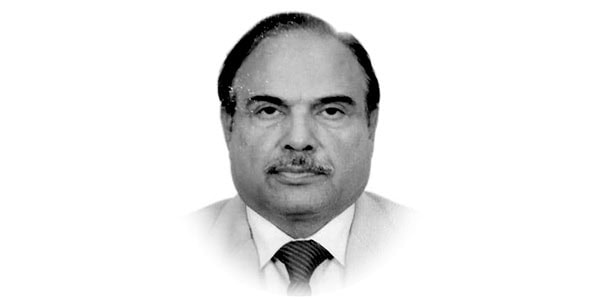ECP unable hold LG polls in Punjab
CHIEF Election Commissioner, Sikandar Sultan Raja, observed that the Provincial Government of Punjab should immediately provide local government rules, number of union councils and wards, number of reserved seats, maps and demarcation notification to the Election Commission of Pakistan so that the latter could discharge its constitutional duties as per Article 140-A and 132.
The background of the local government elections is that the Punjab government had dissolved the local government institutions in April 2019 and after the order of the Supreme Court of Pakistan, they were restored but their term expired on 31 December 2021.
In the meantime, the provincial government kept amending the laws from time to time, due to which it was not possible to hold elections as per constitution.
Under Article 140-A of the Constitution and Section 219 of the Elections Act 2017, the Election Commission of Pakistan is bound to hold elections within 120 days of the expiry of the term of the local government institutions.
The Supreme Court of Pakistan has issued clear orders for holding local government elections in Punjab and that not holding elections on time was not only in violation of the Constitution and law but also the order of the Supreme Court.
I have always called for the timely holding of local government elections as a constitutional requirement, and advocated for strong local government system, through this paper.
I am of the opinion that the fact is that ECP’s instructions may not be feasible in the midst of the national flood emergency.
Local government elections in Punjab as well as the delayed second phase in Sindh, needs to be held as soon as possible, but only after the flood waters have subsided, and the affected people are in a position to exercise their right to adult franchise.
While the central and northern parts of Punjab have fared relatively better where the floods are concerned, the southern parts of the province bordering Sindh and Balochistan have been hit hard, which means immediate local government elections in these areas will hardly be possible.
Moreover, with the weatherman, forecasting more rains for this month, relief and rehabilitation work may be affected, further delaying local elections.
Once people in Punjab and Sindh are in a position to cast their votes with their homes rebuilt and livelihoods restored, the local government elections should go ahead without any delay.
However, the politicians involved need to be asked why local government elections have consistently been put off.
For example by law, local government elections should be held 120 days after expiry of the local bodies’ terms.
In Sindh, the local government institutions completed their term in August 2020, the first leg of local government elections was only held in the province in June 2022, clearly beyond the 120 day legal limitations.
The floods have struck hard but why did Sindh and Punjab governments not hold the elections in better times?
The fact is that all political parties fear that empowering local bodies will dent their politics of patronage, and was it not for the pressure of the courts, the parties would be least interested in holding these crucial elections.
It’s also true that working local governments can play a more effective role in all stages of managing natural disasters much better than parliamentarians preoccupied with power politics, or VIPs that parachute in for a brief period.
Whether it is organising civil defence, helping evacuate settlements or coordinating relief and rehabilitation work, it is the local government representatives who are closest to the people, and can better communicate their needs to the federal and provincial governments, as well as to donors.
While local governments can play a crucial disaster mitigation role in the flood prone rural areas, even in the cities they can help better deal with urban flooding.
Elected local bodies may not be able to prevent natural disasters, but they can surely play a constructive part in building resilience to natural calamities.
As a positive development in holding the much delayed local government elections in Islamabad, the Election Commission of Pakistan issued the final list of 101 constituencies’ union councils.
The delimitation of constituencies is the main prerequisite before issuing the schedule for the local government elections.
Now the ECP could issue the election schedule any time.Once the schedule is issued, elections are to be held in 60 days.
The local government in Islamabad completed its five-year term in February 2021 and elections should have been held within three months after that.
The former PTI government failed to hold the elections on time as, apparently, it wanted to get the elections held under a new Local Government Act but could not do so despite constant pressure from the ECP to hold the elections as soon as possible.
But after much delay, the ECP earlier in 2022 issued a schedule fixing 31 July as the elections in the 50 Union Councils.
However, PML-N, PPPP and PTI filed a petition in Islamabad High Court, demanding that instead of holding the elections in 50 Union Councils, the number of Union Councils should be increased to 101 for better representation in Metropolitan Corporation Islamabad.
—The writer is former Secretary Election Commission of Pakistan and currently Chairman National Democratic Foundation.










